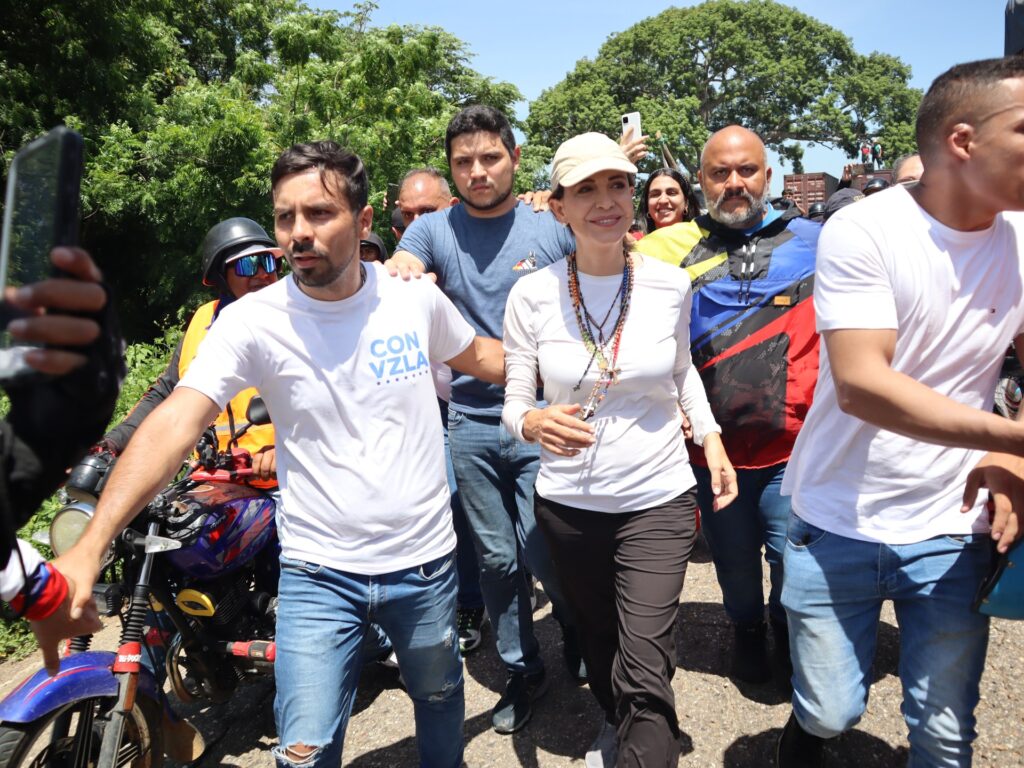- Maria Corina Machado campaigns for Edmundo Gonzalez Urrutia in Venezuela’s presidential race.
- Government forces block roads and close gas stations to hinder her journey.
- Despite challenges, Machado remains determined to support the opposition candidate.
Maria Corina Machado’s journey from Caracas to Maracaibo, which should take about nine hours, stretched to nearly twelve due to government roadblocks and closed gas stations. Machado, a popular opposition leader, was on the road to campaign for Edmundo Gonzalez Urrutia, the candidate aiming to unseat President Nicolas Maduro. Despite these challenges, Machado sees the obstructions as the last desperate attempts of an authoritarian regime trying to cling to power.
In Maracaibo, at a news conference on July 24, Machado explained that these obstacles are confessions of a regime aware of its defeat. She cited efforts to deny poll monitor accreditation as another example of such tactics. However, she remains undeterred, expressing confidence in overcoming these challenges.
As Venezuelans prepare to vote for the presidency, President Nicolas Maduro struggles in the polls, trailing significantly behind Gonzalez. An opposition victory could end nearly a quarter-century of socialist rule, but leaders like Machado warn that Maduro will not relinquish power easily, anticipating further attempts to subvert democracy.
Machado, a former member of Venezuela’s National Assembly, is familiar with Maduro’s tactics. Despite winning the opposition primary with 92.5 percent of the vote, she was barred from holding office by Maduro’s allies, accused of supporting US sanctions and corruption. In January, Venezuela’s Supreme Court upheld the ban, effectively removing her from the race. Barred from air travel, Machado now rallies voters on behalf of Gonzalez, drawing large crowds despite continued harassment.
At a recent rally in Maracaibo, Venezuelan national police detained six people arranging sound systems and transport for Machado’s team. Their equipment was confiscated, forcing Machado to address the crowd without a sound system. Her campaign staff has also faced harassment, with some seeking refuge in the Argentinian embassy in Caracas to avoid arrest. Machado’s security chief was recently detained and released, and campaign vehicles were vandalized.
Machado’s team is accustomed to carrying extra fuel and repair supplies, anticipating government efforts to close gas stations along their route. Despite these challenges, Machado has received unexpected support, including from motorcycle groups known as “motorizados,” who once harassed the opposition but now protect her campaign.

